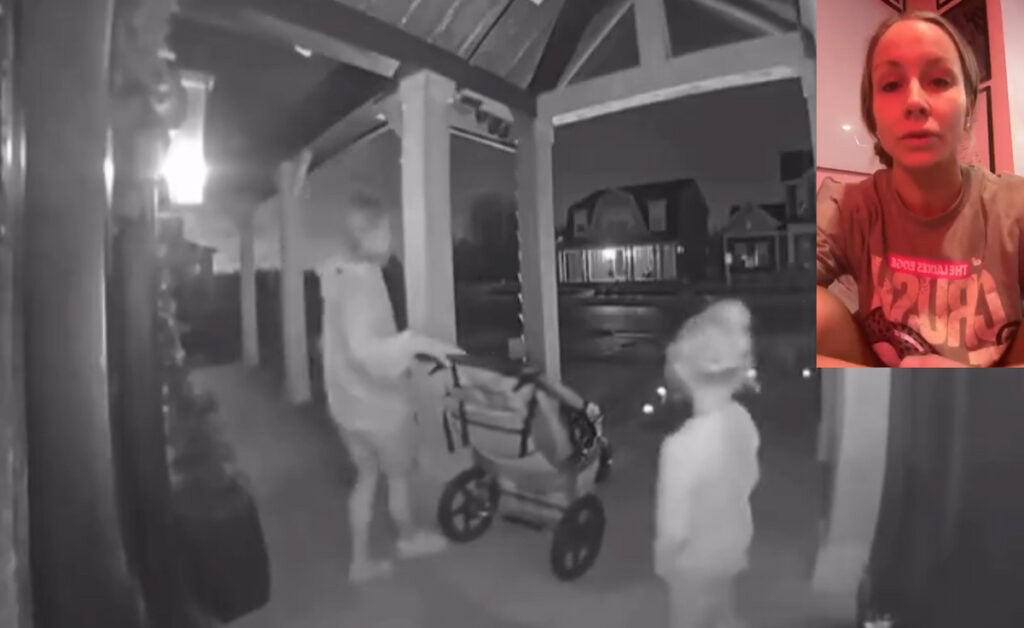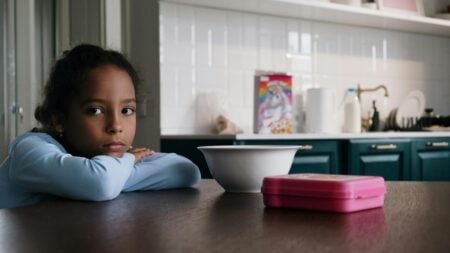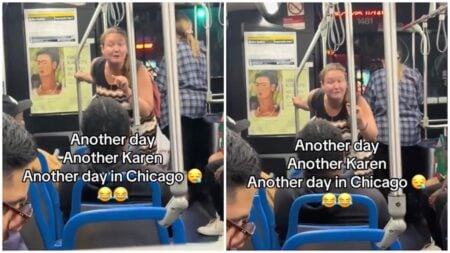An incident in an affluent Ohio neighborhood has ignited a firestorm of controversy after a viral video showed a white woman, later identified as Michelle Bishop, accusing a Black man of not belonging at his own home. The footage, captured on a Ring doorbell camera and widely shared on social media, has drawn accusations of racial profiling, sparking widespread debate on biases and community dynamics in America.
The video, initially posted on X shows Bishop standing on the porch of Mike Jenkins, a Black real estate developer, alongside her two young children. According to Jenkins, he had just pulled into his driveway when Bishop confronted him, questioning whether he lived there. In the clip, Bishop can be heard telling Jenkins, “I don’t believe you,” before hastily leaving with her children.
The incident has since gone viral, with countless social media users condemning Bishop’s actions. One comment on X summarized the general sentiment: “The man was pulling into his own home, without any threatening words, body language, or gestures. She assumed he was out of place because he is Black.”
Bishop claims the confrontation stemmed from fear, not racial bias. In her explanation, she described how she became suspicious when she noticed Jenkins’ car driving slowly down the road, a behavior she misinterpreted as someone “following” her. Feeling uneasy, she walked to the nearest occupied home to seek safety, which happened to be Jenkins’ property.
When Jenkins approached and explained that it was his house, Bishop responded with disbelief. In her follow-up apology video, Bishop stated, “I never thought it was a Black man. I thought it was a white man in that truck.” She went on to claim that the lighting conditions made it difficult to see Jenkins’ race. Critics, however, have dismissed this explanation as deflection.
After the video went viral, Bishop faced intense backlash online. Comments on platforms like X and Reddit described her behavior as emblematic of racial profiling, with one Reddit user remarking, “The moment she said, ‘I don’t believe you,’ it turned into a 100% racist moment. If the guy had been white, she would have believed him.” Another commented, “This is how people of color get shot by police—white people yelling for help when they should just mind their own business.”
Under pressure, Bishop released a series of emotional apology videos on X. Fighting back tears, she attempted to clarify her actions, claiming her reaction was motivated by fear for her children’s safety. “I was on edge, because I was like, he doesn’t live here,” she said. Bishop added that she has apologized to Jenkins and other neighbors in person, calling the incident a “misunderstanding.”
Jenkins, for his part, has addressed the situation with grace and composure. In a statement shared on Instagram, he expressed pride in his ability to remain calm during the incident. “Even in the hardest moments, I kept my composure,” he wrote. “It could’ve been so easy to lose control, but I didn’t.”
He also reflected on the broader implications of the encounter. “This isn’t just about me. It’s about how we, as a society, see each other. People of color deal with these assumptions every day.”
This incident has reignited discussions about racial bias and the dangers of unconscious prejudice, particularly in predominantly white neighborhoods. Many online pointed out how easily such situations could escalate, citing past cases where misunderstandings rooted in racism have ended tragically. “Imagine if there was no Ring camera to show what really happened,” one commenter wrote. “This could’ve gone so wrong for him.”
For Jenkins, the incident may be over, but for many others, it’s another chapter in the ongoing struggle for equality and understanding.








